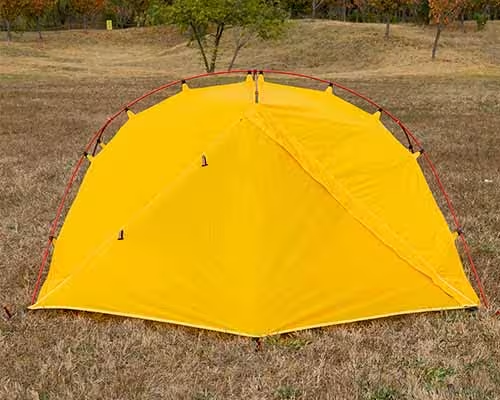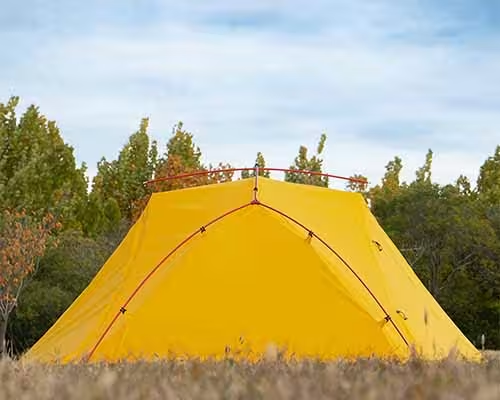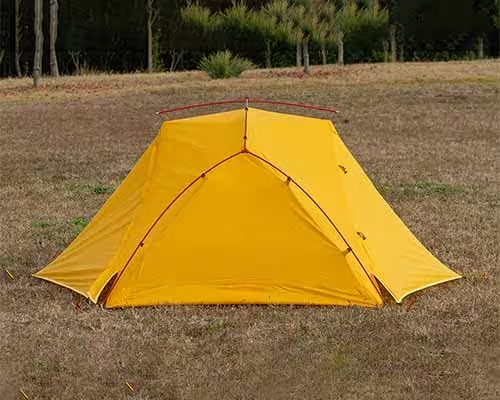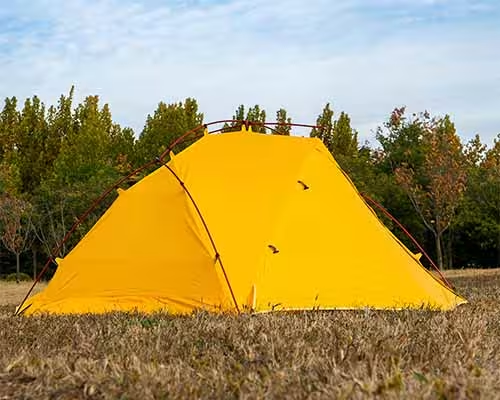Welcome to My Blog!
Before we dive into the content, I’d love for you to join me on my social media platforms where I share more insights, engage with the community, and post updates. Here’s how you can connect with me:
Facebook:https://www.facebook.com/profile.php?id=61569274896143
Now, let’s get started on our journey together. I hope you find the content here insightful, engaging, and valuable.
Table of Contents
Introduction

Embarking on outdoor adventures requires gear that balances comfort, durability, and portability. Among the essentials, a lightweight camping tent stands out as a pivotal choice for campers seeking efficiency without compromising shelter quality. This comprehensive guide delves into the advantages of lightweight camping tents, their features, and considerations to help you make an informed decision for your next expedition.
Understanding Lightweight Camping Tents
A lightweight camping tent is designed to offer shelter without adding significant weight to your backpack. Typically weighing between 1 to 3 pounds, these tents are ideal for backpackers, hikers, and minimalist campers. Their construction focuses on using advanced materials and streamlined designs to reduce weight while maintaining structural integrity and weather resistance.
Benefits of Choosing a Lightweight Camping Tent
Enhanced Portability
The primary advantage of a lightweight camping tent is its ease of transport. Whether you’re trekking through rugged terrains or embarking on multi-day hikes, the reduced weight minimizes fatigue and allows for longer journeys.
Quick and Easy Setup
Lightweight tents often feature intuitive designs that enable rapid assembly and disassembly. This efficiency is crucial when setting up camp in adverse weather conditions or after a long day of hiking.
Space Efficiency
These tents pack down to compact sizes, conserving valuable space in your backpack. This compactness allows for better organization and the inclusion of other essential gear.
Versatility
Lightweight camping tents are suitable for various environments, from alpine regions to forested trails. Their adaptability makes them a go-to choice for diverse camping scenarios.
Key Features to Consider

Material Quality
Opt for tents made from high-denier nylon or polyester fabrics, which offer a balance between weight and durability. Materials like Dyneema Composite Fabric (DCF) provide exceptional strength-to-weight ratios.
Weather Resistance
Ensure the tent includes a robust rainfly and sealed seams to protect against rain and wind. A waterproof rating of at least 1,200 mm is recommended for reliable performance in wet conditions.
Ventilation
Adequate airflow prevents condensation buildup inside the tent. Look for designs with mesh panels and adjustable vents to maintain a comfortable interior climate.
Interior Space
While prioritizing weight, consider the tent’s interior dimensions to ensure sufficient space for occupants and gear storage. Features like vestibules can provide additional storage without compromising sleeping areas.
Comparative Analysis of Lightweight Camping Tent Features


| Feature | Description |
|---|---|
| Weight | Typically ranges from 1 to 3 pounds, facilitating easy transport. |
| Capacity | Available in 1 to 3-person models to suit solo or group campers. |
| Material | High-denier nylon, polyester, or DCF for durability and lightness. |
| Waterproof Rating | Minimum of 1,200 mm to withstand moderate to heavy rainfall. |
| Setup Mechanism | Freestanding or semi-freestanding designs for quick assembly. |
| Ventilation | Mesh panels and vents to enhance airflow and reduce condensation. |
| Packed Size | Compact dimensions for efficient backpack storage. |
| Additional Features | Vestibules, gear lofts, and internal pockets for organization and storage. |
Maintenance and Care Tips
- Regular Cleaning: After each trip, clean your tent with mild soap and water to remove dirt and prevent mold growth.
- Proper Storage: Store the tent in a cool, dry place, loosely packed to maintain fabric integrity.
- UV Protection: Limit prolonged exposure to direct sunlight to prevent material degradation.
- Inspection: Before each use, inspect for damages or wear, addressing issues promptly to ensure safety.
Conclusion
Investing in a lightweight camping tent enhances your outdoor experience by offering portability, ease of setup, and reliable shelter. By understanding the features and maintenance practices, you can select a tent that aligns with your camping needs and ensures longevity.
Ready to elevate your camping adventures with the perfect lightweight tent? Contact us today to explore our curated selection and find the ideal match for your outdoor pursuits.
FAQ
What is the ideal weight for a lightweight camping tent?
An ideal lightweight camping tent typically weighs between 1 to 3 pounds, balancing portability and durability.
Can lightweight tents withstand harsh weather conditions?
Yes, many lightweight tents are designed with high-quality materials and waterproof features to endure various weather conditions.
Are these tents suitable for winter camping?
While some lightweight tents can handle mild winter conditions, it’s essential to choose models specifically designed for cold weather if planning winter expeditions.
Do lightweight tents compromise on space?
While they prioritize weight reduction, many designs incorporate smart layouts and vestibules to maximize usable space.